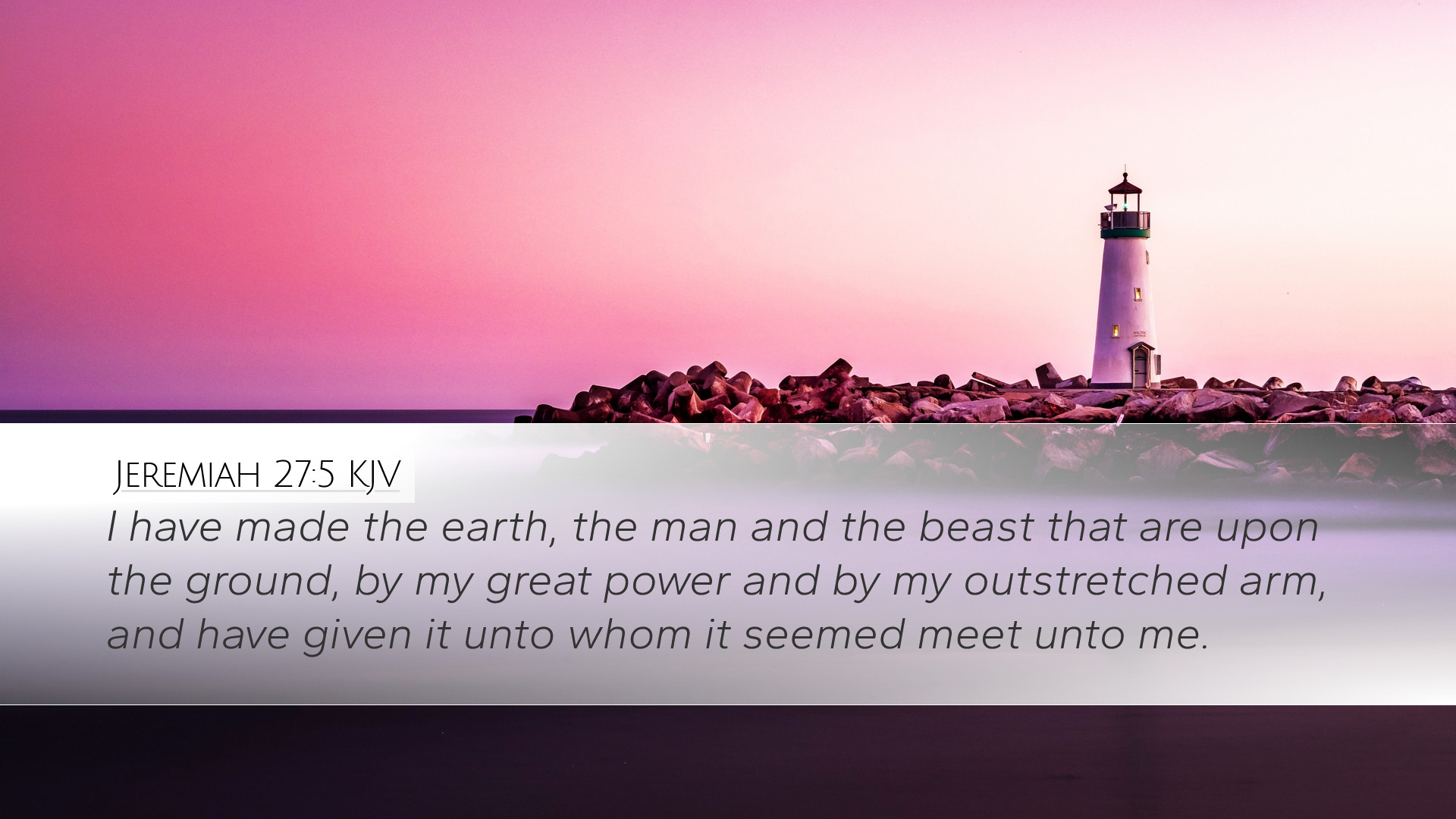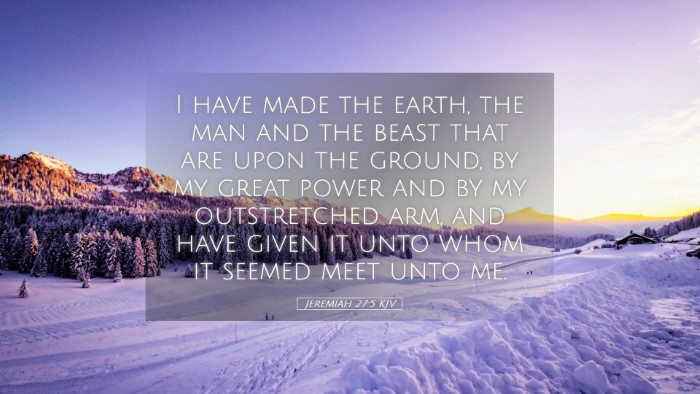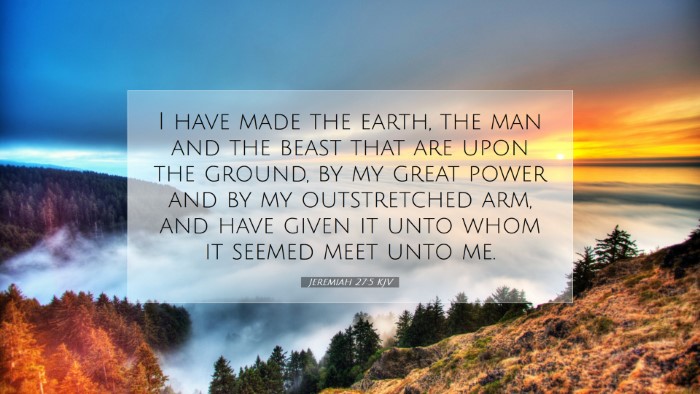Commentary on Jeremiah 27:5
Jeremiah 27:5 states: "I have made the earth, the man and the beast that are upon the ground, by my great power and by my outstretched arm, and have given it unto whom it seemed meet unto me." This verse encapsulates profound theological truths about God's sovereignty, creative power, and governance over the nations. Below, we will explore the insights from prominent public domain commentators including Matthew Henry, Albert Barnes, and Adam Clarke.
The Sovereignty of God
Matthew Henry emphasizes that God's sovereignty is a central theme throughout the Bible. In this verse, the declaration of God as the creator of the earth and all living things highlights His ultimate authority. He rules over creation not only in its beginnings but also in its ongoing history. Henry remarks that God’s claim to have given the earth to whom He chooses serves as a reminder that worldly power is transient and ultimately derived from divine will.
Albert Barnes further comments on the implications of God's sovereignty as presented in this verse. He notes that God’s dominion extends over all creation and all nations. The phrase "it seemed meet unto me" indicates that God’s decisions regarding the allocation of power among nations are based on divine wisdom and purpose, which may not always align with human understanding or expectations. Barnes stresses that this truth should inspire humility among leaders and nations, recognizing that their power is granted and can be revoked by God at any time.
The Nature of Creation
Adam Clarke provides insights into God's creative process as articulated in this verse. He points out that the reference to "the man and the beast" signifies that creation is characterized by order and purpose. Clarke elaborates that God created humanity in His image, which grants human beings a unique responsibility towards the earth. This dual emphasis on God's majesty as Creator and humanity's role within creation establishes a theological framework for environmental stewardship and ethical governance.
The Power of God
Jeremiah’s assertion of God’s "great power and outstretched arm" serves as a formidable reminder of His might. Matthew Henry interprets this as evidence of God’s active and providential governance over the world, which stands in contrast to the impotence of idols and false gods. He notes that God’s power is not just about creation but also about management and sustenance of all that exists.
Albert Barnes expands on this theme by linking God’s power with His purpose. The outstretched arm suggests readiness to act for the sake of His people and the fulfillment of His will. Barnes explains that this divine capability reassures believers of God's active involvement in history and His ability to intervene in the affairs of men.
Theological Implications
The theological implications of Jeremiah 27:5 are profound for pastors, theologians, and Christian scholars. It underscores the importance of acknowledging God’s sovereignty in our personal lives and societal structures. Matthew Henry encourages believers to trust in God’s overarching plan, even during tumultuous times. This verse serves as a source of hope, reminding us that God remains in control, even when circumstances seem chaotic.
Adam Clarke points out that understanding God’s authority and power helps believers discern the appropriate response to life’s trials. Recognizing that ultimately, God is the one who positions leaders and shapes nations can lead to a more profound trust and reliance on His divine timing and purpose.
Practical Application
- For Pastors: This commentary can serve as a foundational text for sermons on God’s providence and the nature of true authority.
- For Students: Engaging with Jeremiah 27:5 invites deeper theological reflection on issues of governance, power, and responsibility.
- For Theologians: The insights from these commentaries can enhance discussions on the intersection of divine sovereignty and free will in the context of human history.
- For Bible Scholars: The verse prompts a reevaluation of how creation and governance are portrayed in the scriptures, offering fertile ground for scholarly research.
Conclusion
Jeremiah 27:5 encapsulates timeless truths about God’s attributes—His sovereignty, creative power, and providential care for creation. Insights from commentators such as Matthew Henry, Albert Barnes, and Adam Clarke challenge us to recognize not only God’s authority over the nations but also the responsibilities that come with it as stewards of His creation. Let us approach this verse with reverence, allowing its profound truths to shape our understanding and practice of faith in our daily lives.


